Israel’s security chief took personal charge of Eurovision entrant’s security
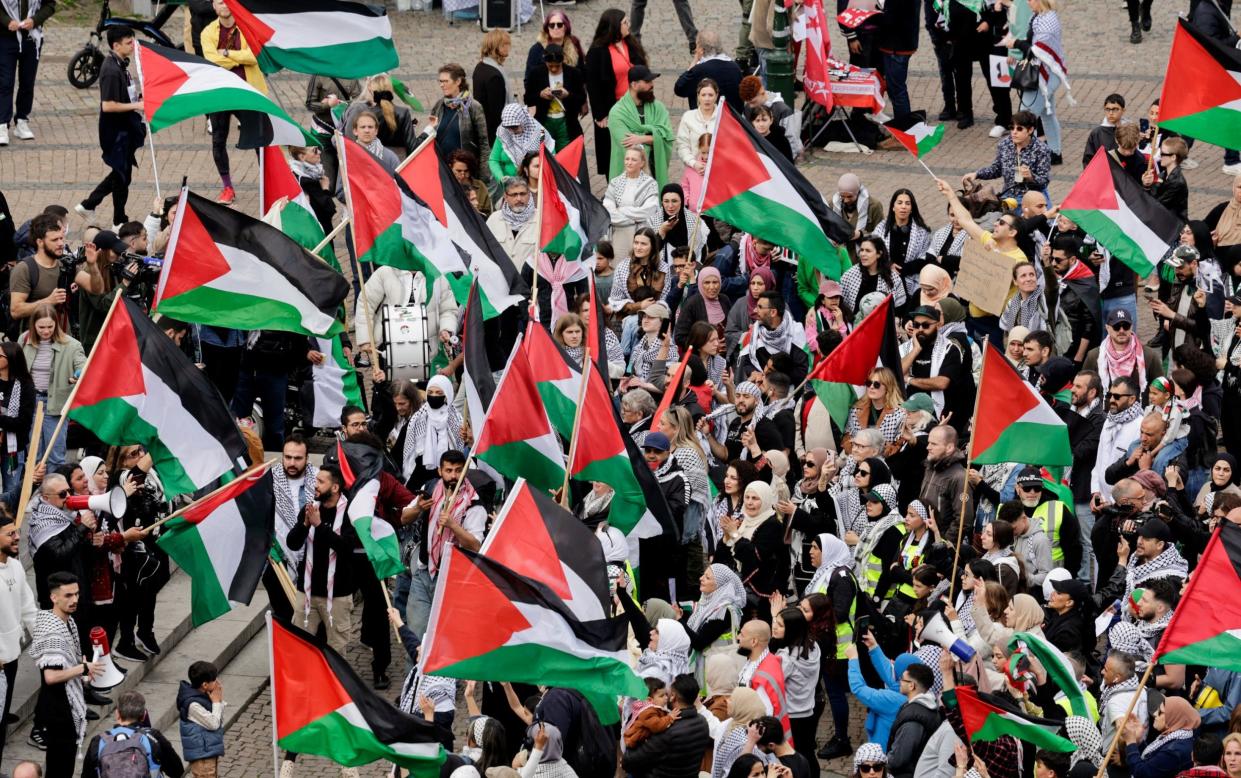
The head of Israel’s security agency personally oversaw safety measures for the country’s Eurovision Song Contest entrant, The Telegraph can disclose.
Israel’s entire delegation, including the 20-year-old singer Eden Golan, have been ordered to stay in their hotel rooms and are being guarded round the clock by Shin Bet, Israel’s secret service.
Israel was so concerned about the Eurovision entrant’s safety that Ronen Bar, Shin Bet’s head, flew to Malmo before the competition began to put in place the tightest possible security.
Golan performed her song, Hurricane, late on Thursday night, after she was booed by some audience members during her dress rehearsal on Wednesday.
A source told The Telegraph: “Eden Golan, along with the entire delegation, are being guarded by the local Swedish police and by Shin Bet.
“She and the whole delegation are very well protected in their hotel. She is not to leave the hotel.
“The head of Shin Bet even flew there ahead of the event to make sure everything was in place. They knew this was going to be a flashpoint.
“It’s incredible that in the middle of a war, Shin Bet’s head felt the need to go to Malmo because of the safety fears.”
As Golan prepared to take the stage on Thursday night, Eurovision’s organisers said they would not “censor” the audience during the live performance, despite the boos at rehearsal.
The European Broadcasting Union (EBU) said: “Just like in all major TV productions with an audience, SVT work on the broadcast sound to even out the levels for TV viewers.
“This is solely to achieve as balanced a sound mix as possible for the audience; and SVT do not censor sound from the arena audience.
“The same principle applies to all competing performances and opening and interval acts.”
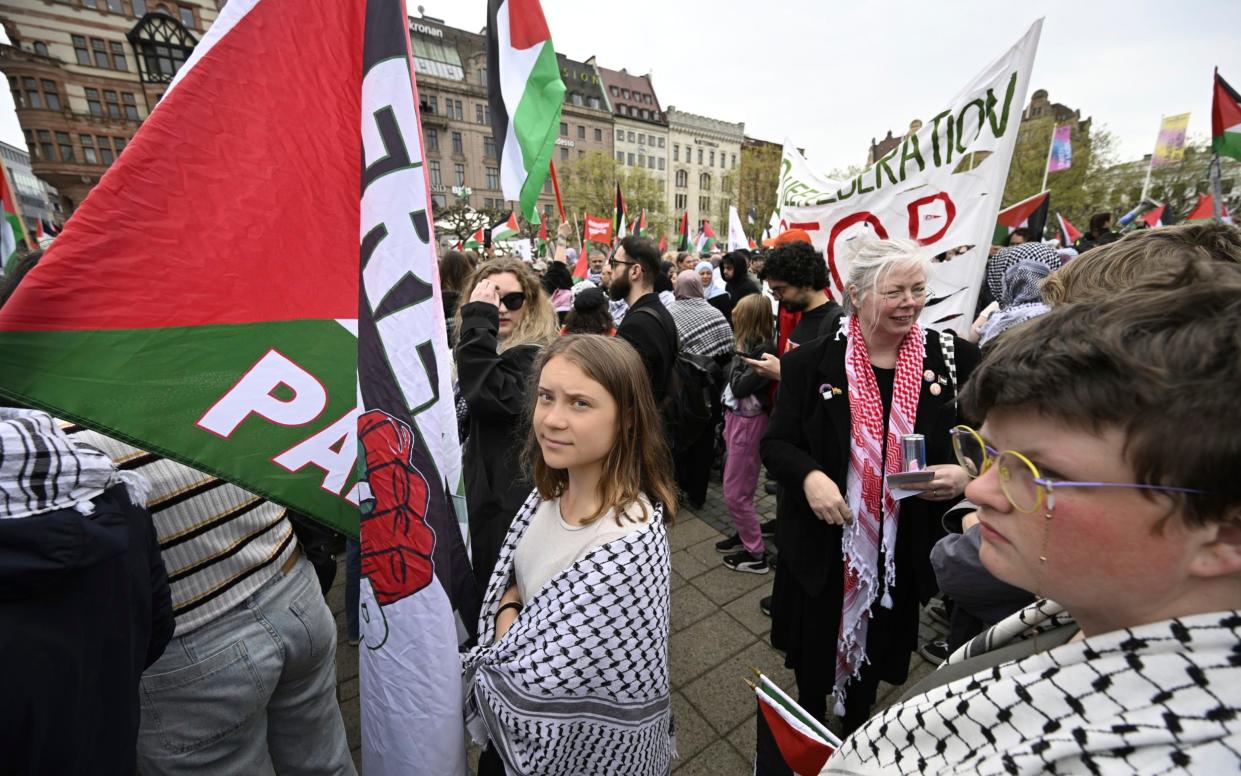
Concerns for Golan’s safety came as Swedish climate activist Greta Thunberg joined a large pro-Palestine protest close to the venue.
The 21-year-old was among an estimated 10-12,000 people marching through Malmo, demanding that Israel be taken out of the competition.
The protesters shouted: “Boycott Israel” and “What is our mission? Israel out of Eurovision”, as well as the controversial “From the river to the sea, Palestine will be free” chant which has been condemned as anti-Semitic.
A banner in the style of Eurovision’s logo reading “genocide” was being held in the middle of the march.
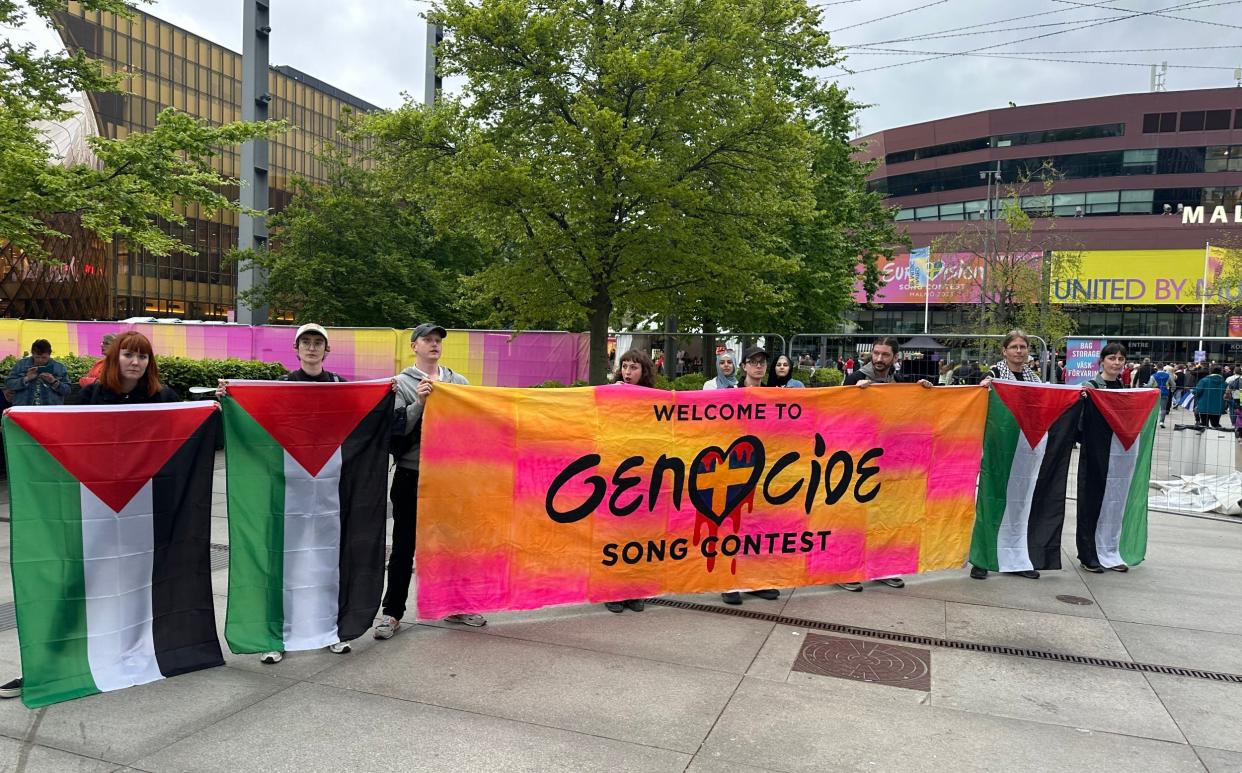
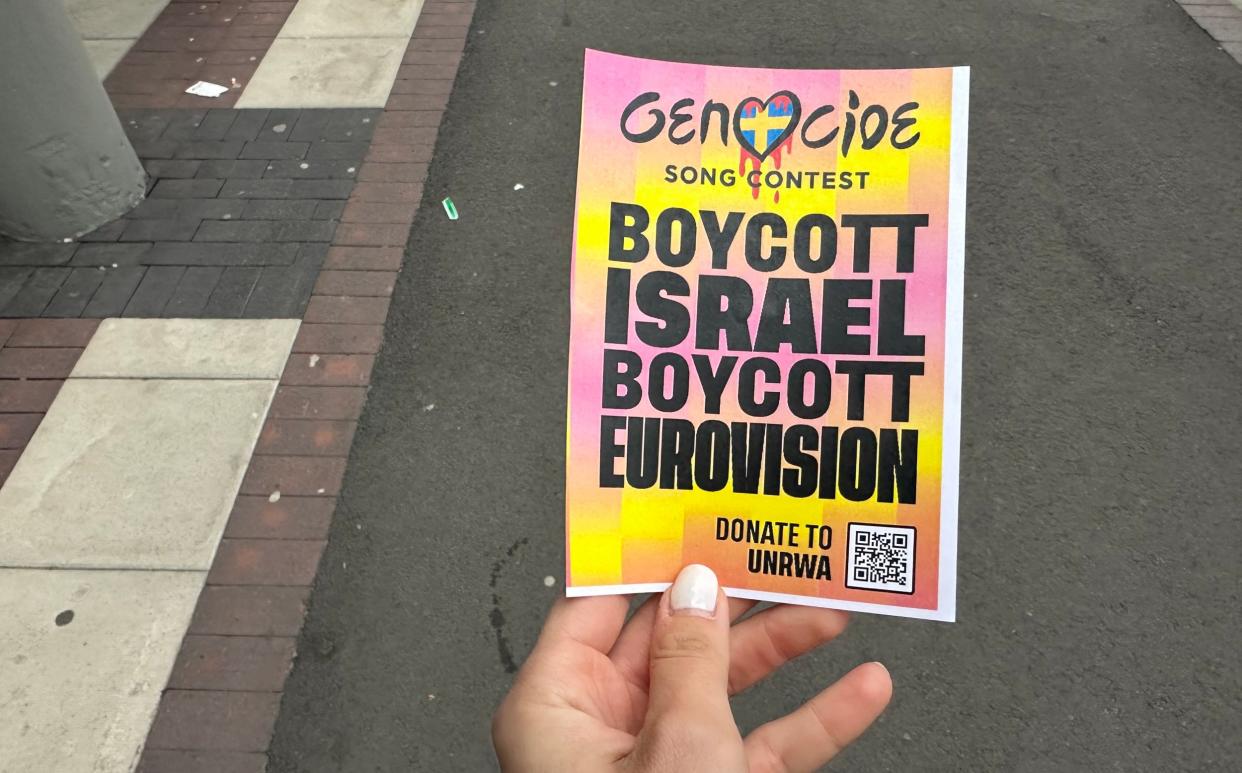
The Israeli officials helping to organise tight security for the singing competition may have taken lessons from the massacre of the country’s athletes at the 1972 Munich Olympics in their planning.
Two Israeli athletes were killed on Sept 5, 1972, when Palestinian terrorists stormed an Olympic village flat. Nine more, five of the eight terrorists and a policemen were killed in a botched rescue attempt 20 hours later.
A heavy police presence was seen outside of the Malmo Arena on Thursday night, as pro-Palestine protesters chanted and held up placards.
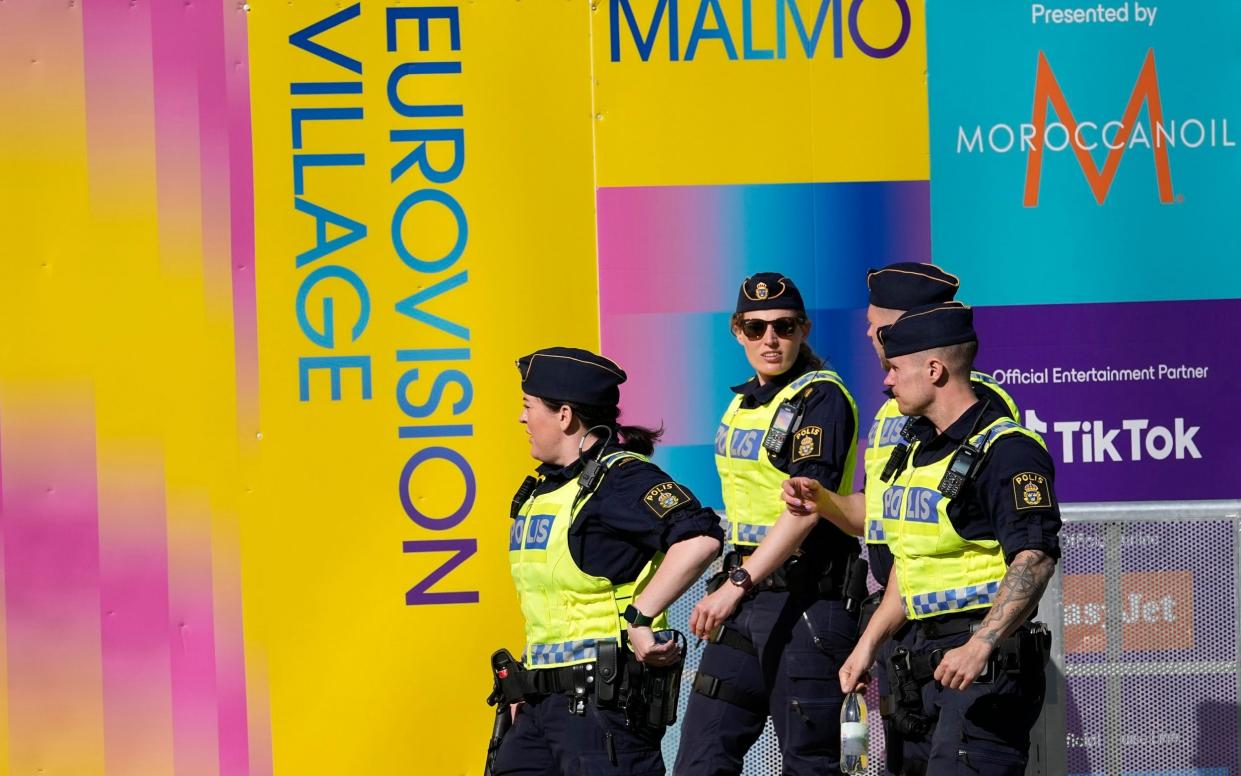
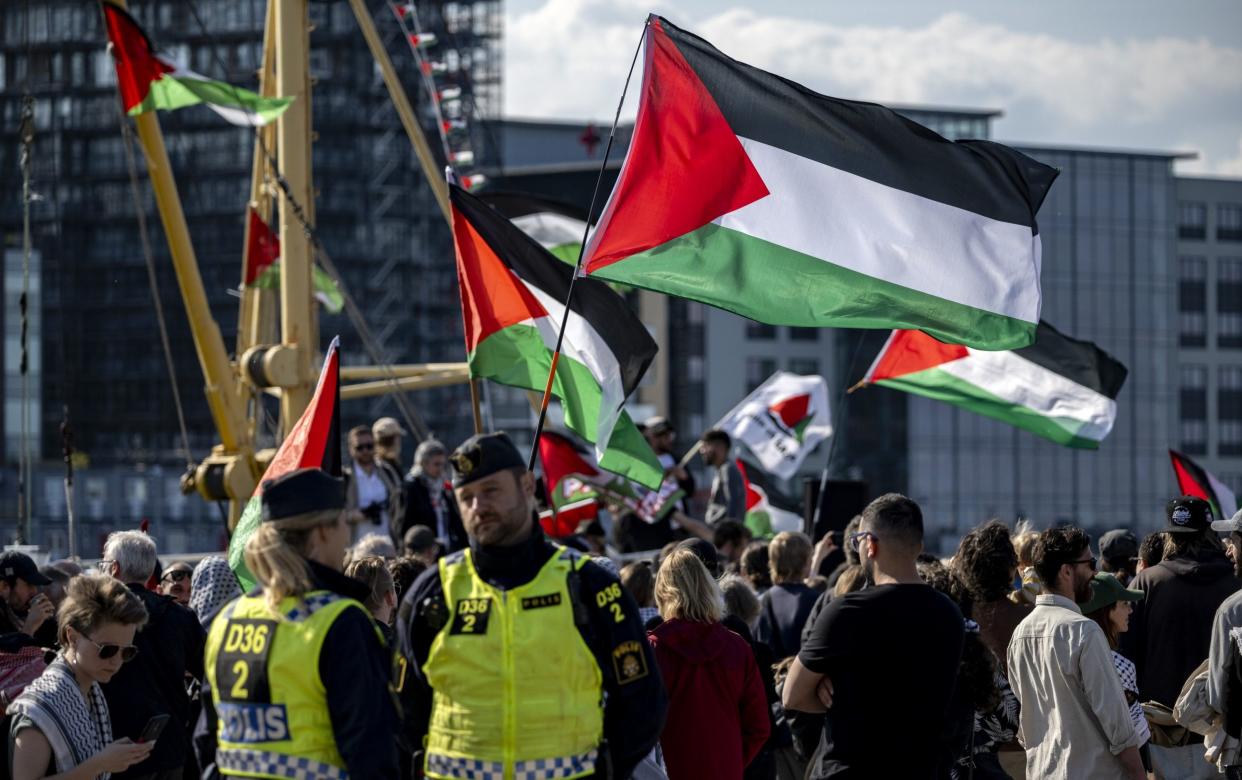
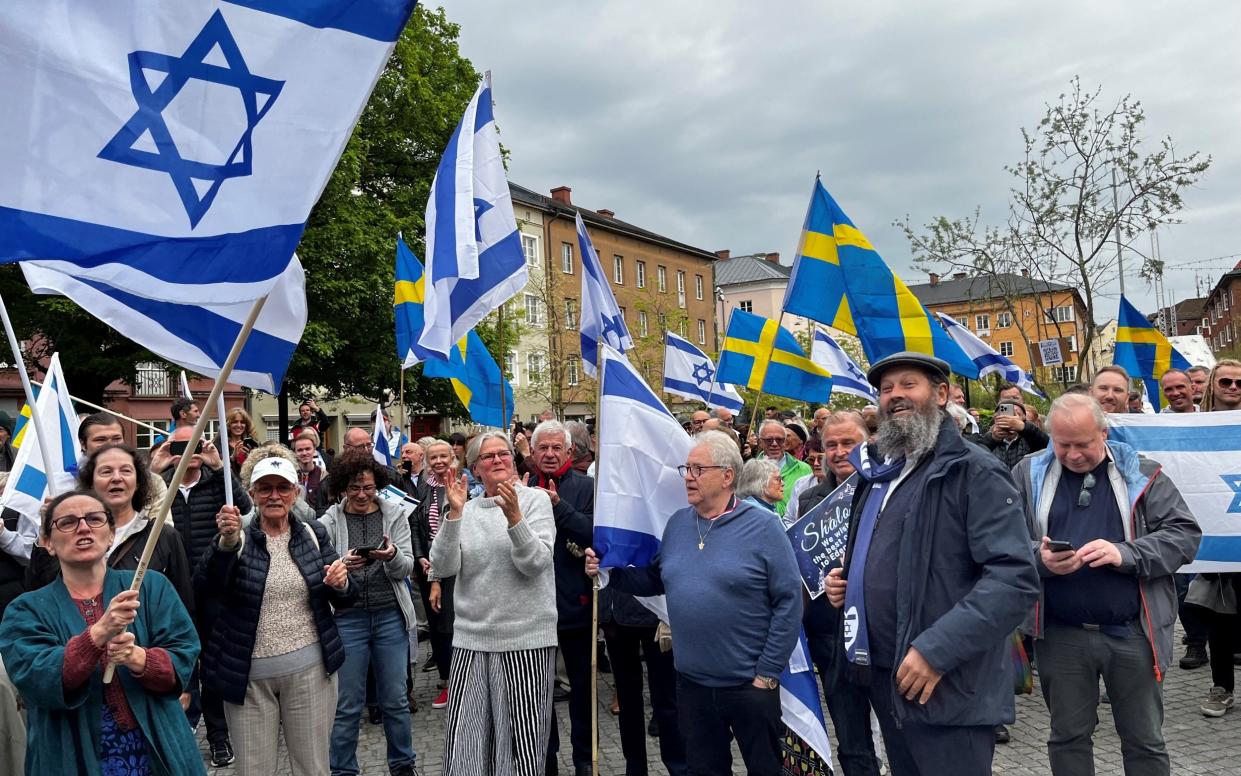
Police officers from Sweden, along with Norway and Denmark, were regularly patrolling the arena, the city centre and the Eurovision village amid the threat of protests and disruption.
Golan, 20, will compete against Norway’s Gate, San Marino’s band Megara, Switzerland’s Nemo and Danish entrant Saba, who called for a ceasefire in Gaza and the “safe return” of Israeli hostages in a joint statement in March.
The artists rejected calls from Palestinian groups to boycott the music contest, saying that they “firmly believe in the unifying power of music”.
Golan, who has been singing and dancing on stage since she was a child, told ITV News this week that she could not have asked “for a better year to be representing my country”.
Her emotional track Hurricane was reworked from a previous song called October Rain, which was renamed after it was thought to reference the Oct 7 Hamas attacks on Israel.
Despite crowds booing during her rehearsal, Golan’s live performance at Eurovision’s second semifinal was met with loud cheering inside the Malmo Arena.
The 20-year-old singer’s relief was palpable as she finished her hotly anticipated performance on stage and gestured happily.
Cheers for her grew even louder at the end of her song, during the verse in which she transitions from singing in English to a verse in Hebrew.
Golan later qualified for Saturday’s final with the song Hurricane following a public vote.
The post-semifinal press conference became tense after a journalist asked Golan: “Have you ever thought that by being here, you bring risk and danger for other participants and the public?”
Israel's Eurovision competitor Eden Golan is asked a very targeted question in tonight's press conference about whether she thinks her participation in the contest is threatening the safety of other participants.
She is told she doesn't have to answer before the Netherlands'… pic.twitter.com/bzgeLpwP0Y— India McTaggart (@indiamctaggart) May 9, 2024
She was told by event organisers that she did not have to answer the question, prompting the Netherlands’ entrant Joost Klein to loudly ask “why not?”
He then proceeded to sit through Golan’s answer with his arms crossed and his eyes closed.
Other countries’ entrants alluded to the heightened tensions and Israel-Hamas conflict in their own answers, with Latvian contestant Dons saying that “every country deserves to be free”.
Klein was also asked how his song was a “unifying” track, to which he curtly responded that it was better to “ask the EBU” that question.
The contest has been plagued by rows over Israel’s participation amid the country’s ongoing military campaign against Hamas in Gaza, now in its seventh month.
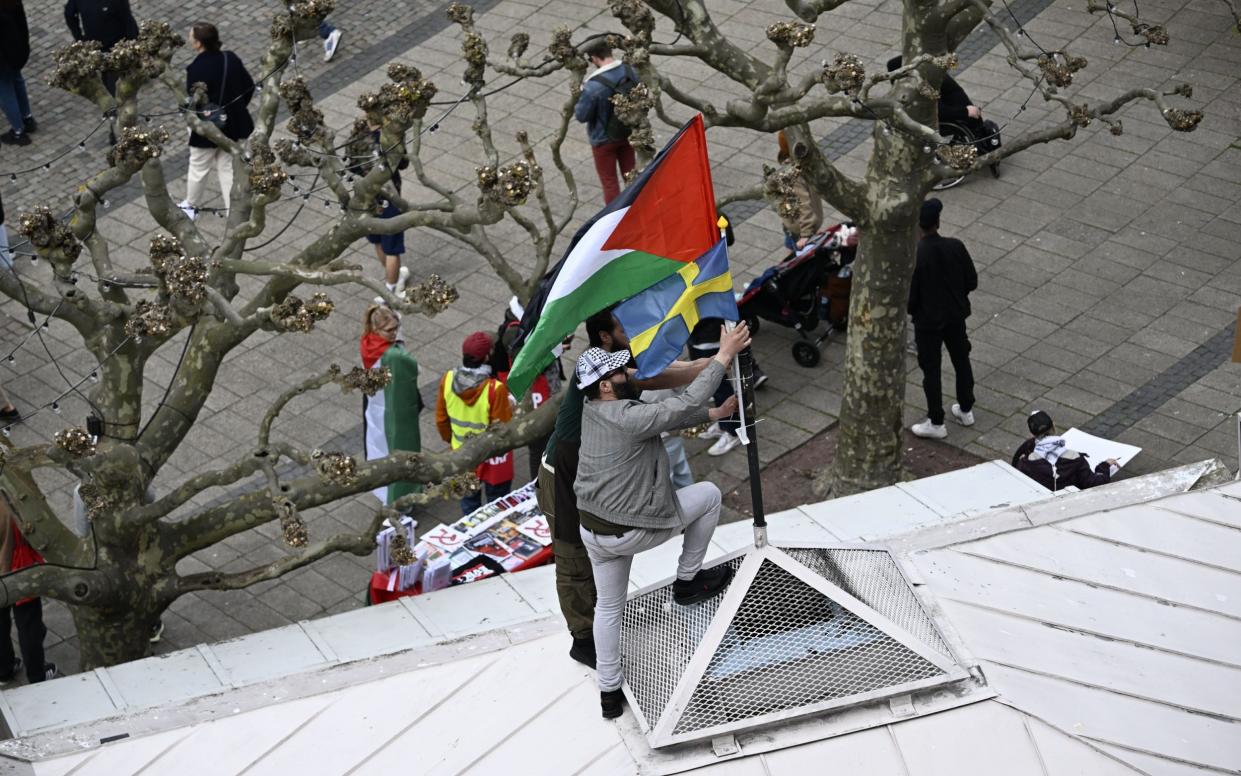
At the opening ceremony on Tuesday, the European Broadcasting Union (EBU), which organises the event, expressed “regret” that a Swedish star had taken to the stage wearing a distinctive keffiyeh scarf to show his support for Palestine.
In an Instagram story, Eric Saade explained that it was a “way of showing a part of my origin” and was a gift as a child from his father, who is of Palestinian origin.
He also said: “I just wanted to be inclusive and wear something that is authentic to me – but the EBU seems to think my ethnicity is controversial. It says nothing about me, but everything about them.”
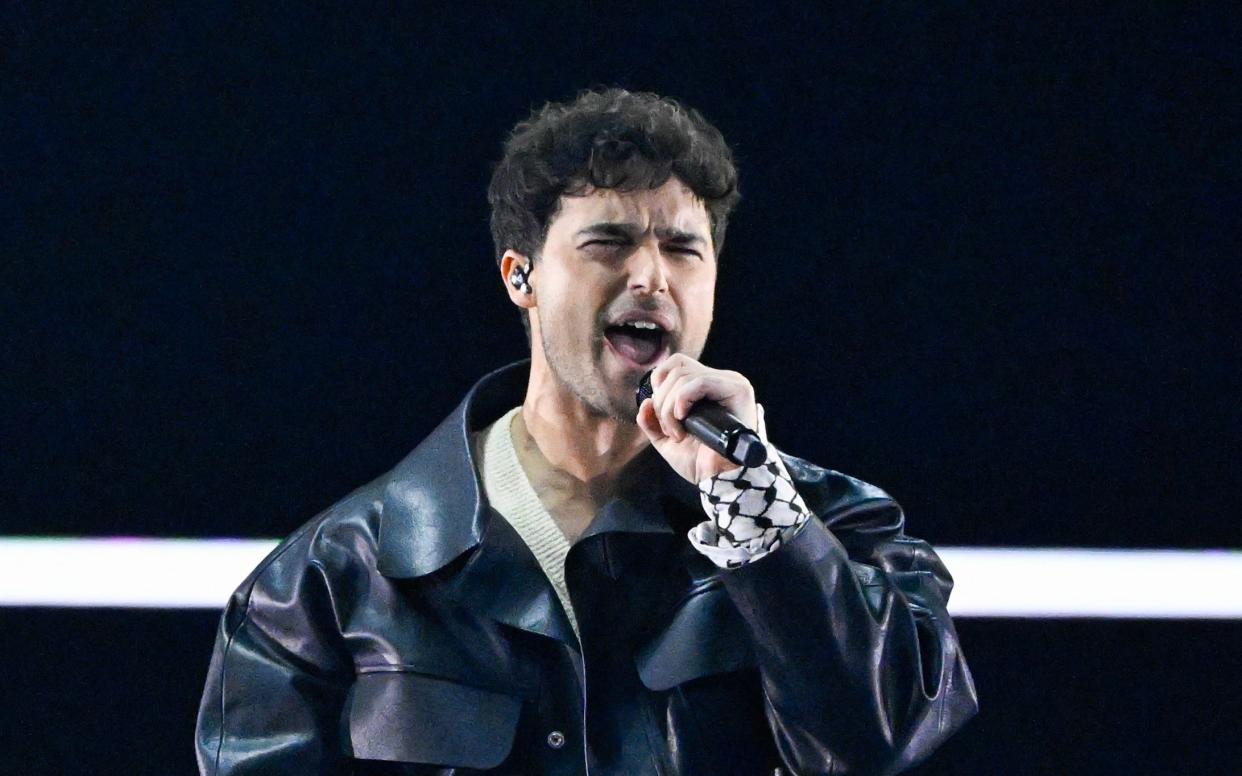
It has been made clear to attendees and contestants that Eurovision is a non-political event and therefore no political statements are permitted.
Ireland’s non-binary entrant Bambie Thug revealed after their performance on Tuesday night that they had been barred from writing “ceasefire” and “freedom for Palestine” on their body.
Speaking at a press conference after the first semi-final, they said: “It was very important to me [to include those messages] because I’m pro-justice and pro-peace.
“Unfortunately, I had to change those messages today in an order from the EBU.”
The EBU also announced last week it reserves the right to remove any Palestinian flags or pro-Palestine symbols at the show, which runs until Saturday.
Ticket holders are only allowed to bring and display flags representing countries that are taking part in the event, as well as the rainbow-coloured flag.
Organisers condemned ‘unfair’ abuse of contestants
In April, the organisers hit out against the “unacceptable and totally unfair” abuse of competitors amid “the backdrop of a terrible war in the Middle East”.
Israel, which was due to perform towards the end of the night on Thursday, has been a strong contender at Eurovision in recent years, winning with Netta Barzilai’s Toy in 2018 and qualifying for the final 12 times since 2003.
One protester, Kaya, said that Israel is “not welcome” in the same way that Russia was barred from entering the competition in 2022 because of the invasion of Ukraine.
The university student told The Telegraph: “We feel strongly and believe that the cultural boycott [of Israel] is very important to just make them feel like they are not welcome and they don’t have an audience.
“They are not welcome because they are committing a genocide against Palestinians the same way that Russia is not welcome either.”
Environmental activist Lisa Bjerke, who held a placard stating “Climate for Palestine”, claimed that climate justice is intertwined with the “humanitarian crisis in Gaza”.
“We are a bunch of individuals active in the climate justice movement who also believe that Palestine’s calls for peace and justice is part of that – you cannot have climate justice without that,” she said.
The environmental science teacher and Malmo local, 34, added: “They are also linked by the fact that the climate crisis is a humanitarian crisis just like the situation in Gaza.”

